Know About Freedom Of Speech And Expressions Under Indian Constitution And Reasonable restrictions Which Comes With It
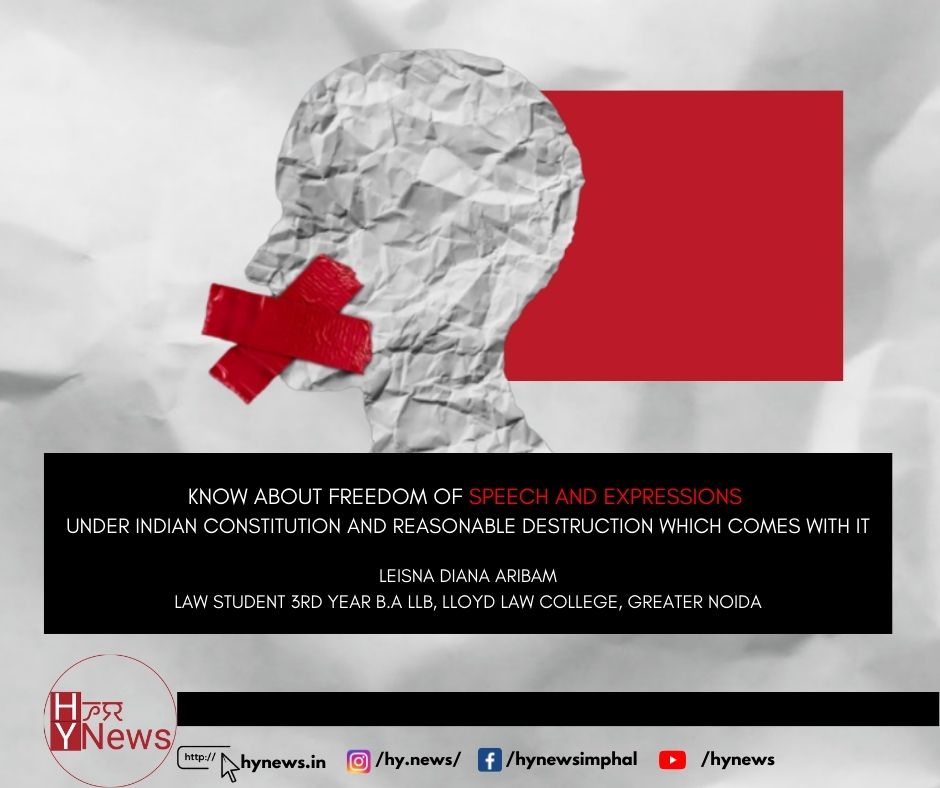
Author: Leisna Diana Aribam, Law Student 3rd year B.A LLB, Lloyd Law college, Greater Noida
In recent times, we have seen the illegal detention of Kishorchandra Wangkhemcha and Erendro Leichombam and subsequently the High Court of Manipur suspending the NSA detention order against Kishorchandra Wangkhemcha. So, we must know what freedom of speech and expression and what reasonable restrictions come with it.
Article 19(1)(a) of the Constitution of India states that all citizens have the right to freedom of speech and expression. The philosophy behind this article lies in the preamble to the constitution, in which the solemn intention was taken to secure freedom of thought and expression for all its citizens. However, the exercise of this right is subject to reasonable limitations for certain purposes which are imposed by Article 19 (2) of the Constitution of India.
Freedom of speech and expression has been recognized under various international agreements such as the Universal Declaration of Human Rights, the European Convention on Human Rights, and the Fundamental Freedoms International Covenant on Civil and Political Rights.
Freedom of expression also covers the rights of the press in India unlike in the US, the constitution does not provide for any special rights for the press. Under the Freedom of Speech and Expression, there is no separate guarantee of freedom of the press as it is already included in the freedom of expression, which is given to all the citizens of the nation.
The concept of freedom of expression has evolved through many case laws to include a wide range of sub-rights that will be considered in detail in the article.
The concept of Free speech has evolved through various case laws to encompass a wide range of subsidiary rights which will be looked into in detail in the article. In the case of Romesh Thapar v. Union of India, the Supreme Court held that freedom of speech and expression lay at the foundation of all democratic organizations without which free political discussions and political education would not be possible, thus making it impossible for the proper functioning of a party. popular government.
Hence, very narrow and strict limits have been placed on the permissible legislative curtailment of freedom of expression. Only restrictions on freedom of expression that could be detrimental to the sovereignty, the integrity of India, and the security of the state will be permitted as reasonable restrictions.
There are many facets of freedom of speech and expression for instance
- Right to Circulate and Publish
- Right to Broadcast
- Right to Report Judicial Proceedings
- Right To Advertise/ Commercial Speech
But one facet of Freedom of Speech and expression, I believe which is very crucial for the smooth working democracy is the 'Right to dissent’
A democratic society shall function smoothly Yi only when the government is open to criticism. Government policies should be analyzed and discussed and faults pointed out and criticized. Expression of opposition to government policy should not be met with unreasonable action on the part of the state as it is protected through freedom of speech and expression under Article 19(1)(a).
In Director General of Doordarshan vs Anand Patwardhan, it was held by the Supreme Court that the government shall not restrict free speech on grounds that it highly criticizes the government.
In Kushbu vs Kanniamal, the Supreme Court upheld the right of an individual to have opinions that were unpopular or contrary to mainstream social practices.
There are many grounds on which the freedom of speech and expression can restrict up to some reasonable restrictions by the state. Such restrictions are defined under clause (2) of Article 19 of the Constitution of India which imposes certain restrictions on free speech under the following:
- Security of the State
- Friendly relations with foreign States
- Public order
- Decency and Morality
- Contempt of court
- Defamation
- Incitement to an offense, and
- Sovereignty and integrity of India
- Security of the State - Some of the restrictions can be placed on freedom of speech and expression, in the departments concerned with state security. It is required to distinguish the term “state security” from the term “public order” because they are similar but different in terms of their intensity. Hence, state security refers to dangerous and worsening forms of general chaos, examples of which include rebellion, waging war against the state even if it is against a part of the state, and so on.
- Public order - It was added in the Constitution (First Amendment) Act, 1951, and this was done to satisfy the situation created by the Supreme Court decision in Romesh Thapar v Madras State (AIR 1950 SC 124). According to the Supreme Court of India, public order is very different from law and order and state security. The term "public order" refers to a sense of public peace, public safety, and tranquility. Anything that disturbs the public peace disturbs the public in turn. But merely criticizing the government does not disturb public order. A law prejudicial to the religious sentiments of any class is valid and reasonable for restrictions intended to maintain public order.
- Decency and morality-These are determined by Sections 292 to 294 of the Indian Penal Code 1860 which prescribes instances of restrictions on freedom of speech and expression on the grounds of decency and morality and then prohibits the sale, distribution, or display of obscene words.
Defamation -Free Speech does not warrant an individual to defame another. A person knowingly makes a statement or publishes a matter to the public about another person that would tarnish the latter’s reputation shall be restricted on grounds of defamation. A defamatory matter in a permanent form such as a matter written or printed is labeled as Libel and the defamatory matter which is spoken is called slander.
I believe that we must all have knowledge of the right our constitution has provided with the reasonable restrictions which come with it. A good democracy can only prosper where there is criticism and must be used correctly. Without it, we cannot say we lived in a democratic State.
Freedom of expression is indispensable to the smooth functioning of any democracy and state interference must be minimal and careful to ensure that individuals can form their own opinions and also be able to express them in whatever form they see fit. It is one basic right that encompasses many aspects, and many forms of expression including the right to silence.
Freedom of Speech and expression cannot be restricted every time it can only be restricted within the ambit of Reasonable restrictions user Art 19(2) of the Constitution.
We must aim to become Vigilant citizen who wants good governance with the use of dissent and opinions but must be used keeping in mind reasonable restrictions.
And also, do not be scared of giving opinions and criticizing the Govt as it is a Constitutional right given to us by the Constitution.

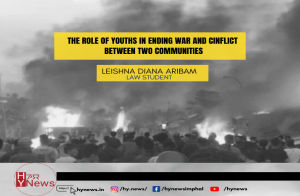

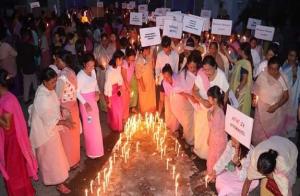
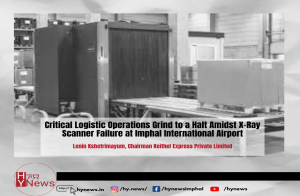
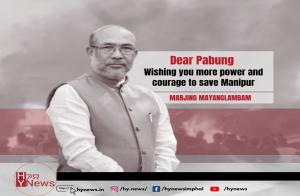
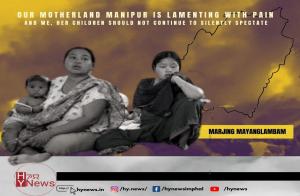
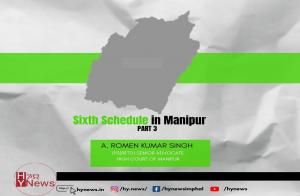
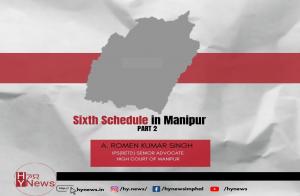
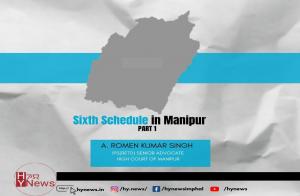
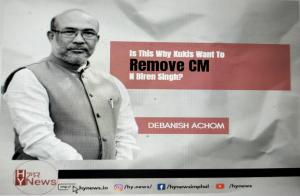
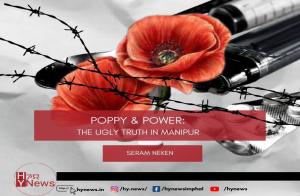

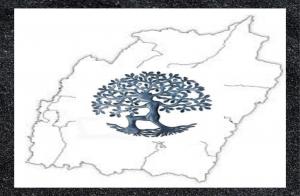

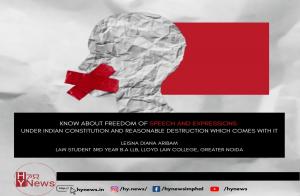

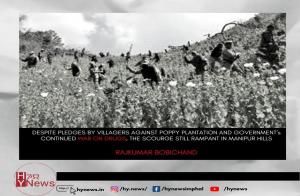
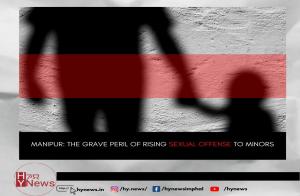
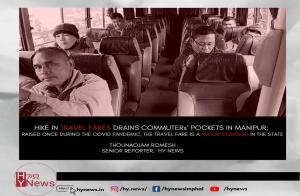
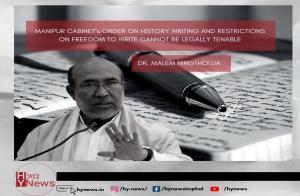
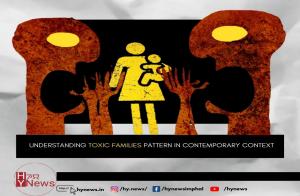
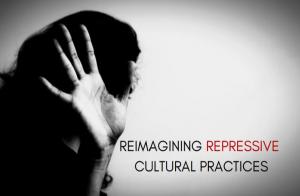
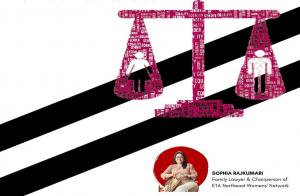
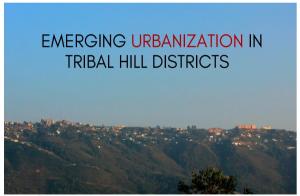
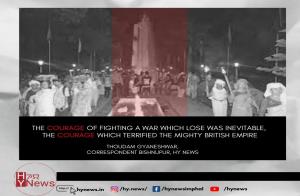
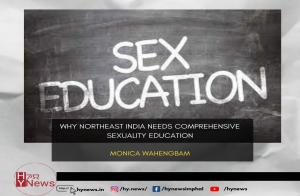
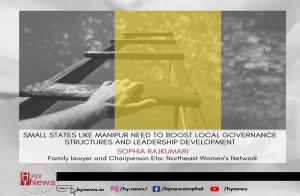
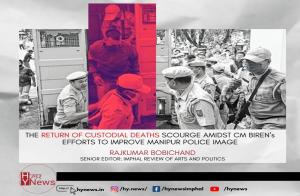

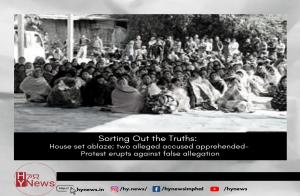





Leave Comments